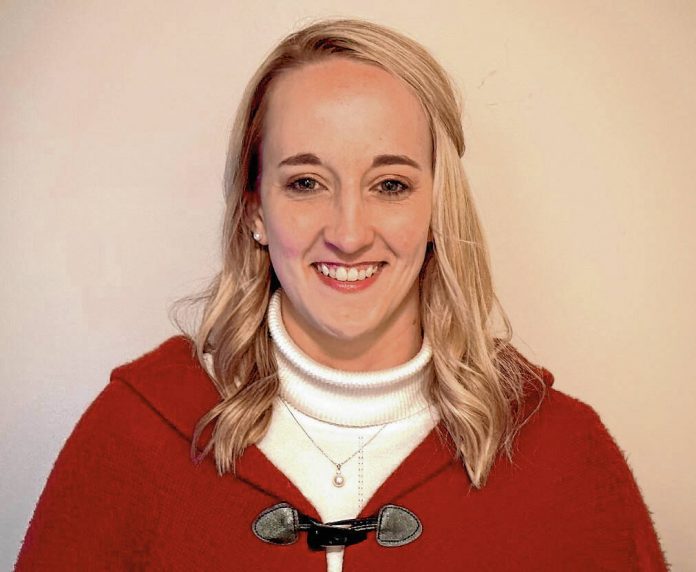HANCOCK COUNTY — The county resident had a knife to his throat and cuts on his arm, the report stated. While officials from the Hancock County Sheriff’s Department were able to calm the man down and get the knife away without anyone being harmed, the dangerous situation had to be dealt with.
Rather than have to handle the after situation on their own, law enforcement can now call on the Hancock County Mobile Response Team (MRT) — a group of highly trained professionals who have been mobilized to work with county residents struggling with mental health and substance abuse issues.
The MRT referral line opened officially in May of this year, Tondra Crum Worley, Program Manager Hancock County Outpatient, Community Fairbanks Behavioral Health, stated in an email to the Daily Reporter.
Officials from the Greenfield Police Department (GPD) say their officers are taking advantage of the new service to aid residents they are called on to help every day.
“I know the new service is being used,” GPD Deputy Chief Chuck McMichael said. “I’ve heard guys talk about how much of a difference it is making with some of those types of calls because people don’t want to talk with police officers about their mental health issues, and now we can get them the immediate help they need.”
The program received 14 referrals from January through April before going live in May when they received 10 more. They were up to 20 referrals in late July. Referrals come from from GPD, HCSD, Hancock County Probation, Hancock County Helping Courts, several Hancock County community partners, Community Fairbanks Access Department and self-referrals, Crum Worley said in the email.
For far too long, Hancock County had a void when it comes to immediate services for mental health and substance abuse issues, county officials say. That is no longer the case.
The county’s MRT was formed by officials with Community Fairbanks Behavioral Health and is up and running, providing the much-needed services. Their goal is to help county residents who need assistance with mental health and substance abuse issues, therefore freeing up law enforcement for other community police work.
The county committed nearly $2.1 million toward the initiative in 2022 from funds it received from the American Rescue Plan.
“All of this was done with an eye on public safety,” prosecutor Brent Eaton said. “Law enforcement officials don’t want to keep seeing the same people over and over again for the same crimes — the goal is to get people some real help.”
Eaton noted those in law enforcement are committed to make sure the work they do benefits public safety, and the program aims to do just that.
“The problem is to reduce recidivism and when we get people who we see are kind of trending to be in the system, if there is a way to do interventions through getting them help, then we want to do that,” Eaton said. “If we can end some of their issues, that would be great.”
The county’s MRT was created to support law enforcement and community stakeholders in responding to individuals with mental health and substance use challenges. The MRT works collaboratively with local law enforcement and community stakeholders to increase the safety of individuals needing mental health and substance use services.
The group works by responding to calls from law enforcement and community stakeholders for adults in distress. When contacted by law enforcement or community stakeholders, MRT will provide a rapid response within 24-48 hours to address needs and link people in distress with further treatment when appropriate.
Part of their interventions include, but are not limited to, face-to-face brief supportive interventions, assessment of the individual’s mental health and/or substance use needs, facilitate referral/admission to inpatient hospitalization when necessary, coordination of appropriate and available community-based services for on-going treatment and follow-up, and provide behavioral health support to adults.
“Police can tell people who are in trouble, ‘Hey, it’s really important to take your medicine and do the things you’re supposed to do,’ but when the trained professionals come in, on the medical side, they can explain everything to the person who needs help far better than we can,” McMichael said.
The MRT is not called in when an individual is actively engaged in a suicide attempt; requires immediate medical attention; or is violent, aggressive, destroying property, physically harming or threatening others.
Officials started the process of building the MRT in January with the hire of Emily Divine as the program leader. Since that time, they have been able to hire a full team that includes life skills clinicians, peers, therapists and a nurse practitioner.
The team will have shifts made up of a life skills clinician and a certified peer recovery specialist working from 10 a.m. to 8 p.m. seven days a week with the goal of increasing funding to grow into a 24/7 operation.
Community Fairbanks currently employs those in that profession in the emergency department at its Community East location in Indianapolis.
County residents or organizations in need of more information about the program can reach out to Divine at 317-318-7130.





